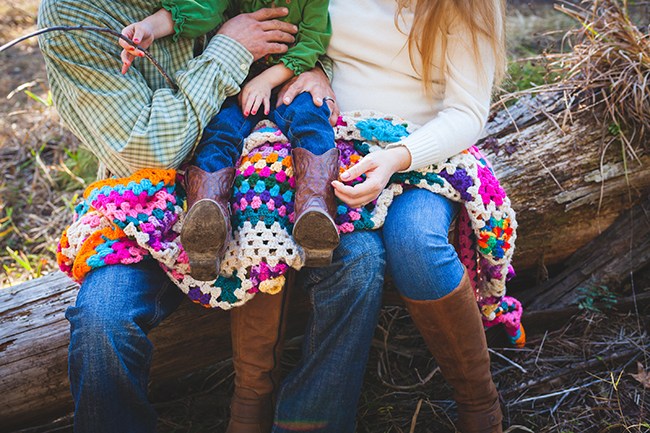With only 2,000 foster parents in Colorado and currently 5,000 kids in the child welfare system, it doesn't take a mathematician to see that there's a major shortage of foster homes.
The Colorado Department of Human Services (CDHS) is actively recruiting foster parents to fill the gap, hoping to meet a goal of 2,500 certified foster families in place by July 2019. The 1,200 new families would increase the current number by 500, as well as account for the expected attrition rate as current foster parents become unavailable. Temporary foster care is needed when, through no fault of the child, their home becomes unsafe due to abuse, neglect, or other family problems. "Foster care gives parents time to learn new skills to become the parents their children need them to be," CDHS's website states. Of course, the ultimate goal is always for kids to remain in their own homes, but sometimes, depending on circumstances, that just isn't possible. Last year, 10,000 Colorado children spent time in out-of-home placements, whether foster homes, group homes, or other residential centers. About 14 Colorado children are removed from their homes and placed in the temporary care of the state every single day.
But the biggest challenge is having a large enough pool of available foster homes in a variety of communities so that when a child does need to be placed outside their home, they can still remain enrolled in their schools and close to their friends. The less a child's life has to be disrupted, the better.
Of course, the ultimate goal is always for kids to remain in their own homes, but sometimes, depending on circumstances, that just isn't possible. Last year, 10,000 Colorado children spent time in out-of-home placements, whether foster homes, group homes, or other residential centers. About 14 Colorado children are removed from their homes and placed in the temporary care of the state every single day.
But the biggest challenge is having a large enough pool of available foster homes in a variety of communities so that when a child does need to be placed outside their home, they can still remain enrolled in their schools and close to their friends. The less a child's life has to be disrupted, the better.
So who can be a foster parent?
Any adult 21 and older, says Luis Guzman, the CDHS acting director. No parenting experience or marital status is required.
We're just looking for people to help out the neediest children, the most vulnerable children in Colorado, and you know they say you can't change the world? Well, you can certainly change the world for a youth who's in need of a loving and supportive home," Guzman told Denver CBS4.However, since social workers try to place kids with families of similar ethnicity and background, they are specifically hoping to recruit more African American, Hispanic, and Native American foster parents, as well as some from the LGTBQ community. Nearly 2,000 of Colorado's foster kids are Hispanic, however, there are only 450 Hispanic foster parents. Approximately 600 of the children are black, with 200 African American foster families, according to CDHS's press release. The department also needs foster homes who are willing to accept multiple children at once, so that siblings don't have to be separated.
 “You can be single; you can be married,” Guzman says. “You can own your home; you can rent your home. You can have tons of parenting experience; you can have no parenting experience. All that matters is that you are 21 years old and you are able to open your heart and your home to a child in need in Colorado.”
There are tons of resources available for foster parents, including training, support, and reimbursement for expenses.
The CDHS website states:
“You can be single; you can be married,” Guzman says. “You can own your home; you can rent your home. You can have tons of parenting experience; you can have no parenting experience. All that matters is that you are 21 years old and you are able to open your heart and your home to a child in need in Colorado.”
There are tons of resources available for foster parents, including training, support, and reimbursement for expenses.
The CDHS website states:
Foster parents receive a monthly reimbursement to offset the costs of providing food, shelter, clothing and other related expenses. The rate varies and may depend upon the age of the child and their level of care they need. The foster parent is not expected to pay for medical or dental care. These expenses are generally covered by Medicaid."For more information on how you can get the process started toward becoming a certified foster parent in Colorado, visit the CDHS website.
